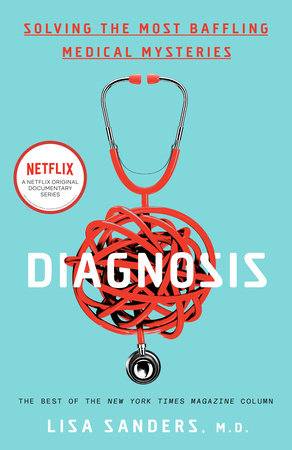Amidst nationwide protests against police brutality and systemic racism in policing, the role of crime writers in shaping public perceptions of the police has also been called into question. Police procedurals are among the most ubiquitous programming on television and almost always center the perspectives of the cops, often depicting acts of brutality as the necessary tactics of heroes who are seeking justice on the public’s behalf. Crime fiction, one of the most popular genres in the world, similarly centers the work of cops, ex-cops, and private detectives or amateur sleuths whose ultimate goal is to identify the correct perpetrator and hand them off to the police.
Of course, there is pleasure in watching experts do their work or passionate amateurs race to solve problems and achieve something—but the thing they achieve doesn’t have to be an arrest and conviction within our current system of policing and punishment. Perhaps in the future we will have crime fiction that envisions justice beyond arrest and incarceration. For now, if you’re looking to defund or abolish the police from your own reading list, consider swapping in one of the following nonfiction tales of heroes who are not cops or ex-cops, fighting to achieve something other than putting people in jail.
Hidden Figures by Margot Lee Shetterly
The heroines of Shetterly’s book are the Black women mathematicians — Dorothy Vaughn, Mary Jackson, Katherine Johnson, Dorothy Hoover, and others — who work for the precursor agency to NASA during World War II. In the newly (somewhat) desegregated defense industry, they serve in the computing pool, operate state-of-the-art calculating machines, question their superiors, catch errors, author research reports, hold or earn graduate degrees, and devotedly support each other’s work. These Black women win recognition and respect in a Jim Crow-era world as they perfect airplanes for the war effort and help to launch the nation’s burgeoning space program.
Then Comes Marriage by Roberta Kaplan
The heroine of this story is Jewish lesbian civil rights lawyer Roberta Kaplan, who represented Edie Windsor in the landmark Supreme Court case United States v. Windsor, which ultimately struck down the Defense of Marriage Act and made LGBTQ+ marriage equality the law of the land in 2015. Kaplan details her strategies in the lower courts and in focusing the case on Justice Anthony Kennedy’s jurisprudence, while also describing the “rainbow coalition” of LGBTQ+ legal advocates and other cases that paved the way for this victory. Through it all, she interweaves her own story of coming out to a homophobic family as well as her compelling personal relationship with Edie Windsor’s late wife, who had been her psychotherapist when she was younger.
The Scarlett Letters by Jenny Nordbak
Nordbak’s memoir details her time working as a dominatrix in a Los Angeles dungeon. It has a case-of-the-week procedural feel as she learns the ropes of her new trade and puzzles out how to cater to each client’s fantasies while staying true to her own boundaries and comfort levels. She investigates new kinks at the conferences and festivals she attends with her colleagues, all while living a double life as a healthcare construction supervisor by day. If you like the idea of sex worker procedurals replacing cop procedurals in your life, this book is a fine place to start.
The Poison Squad by Deborah Blum
The hero of this tale is pioneering scientist Harvey Washington Wiley, chief chemist at the Department of Agriculture in the late 19th century. In a world where cakes are colored with lead and arsenic, milk is preserved with formaldehyde, and poisoned bread and dead rats from the slaughterhouse floor get thrown into meat processors, Harvey leads the fight for food safety. He performs experiments, writes articles, delivers speeches, and joins forces with muckraking journalists and the nascent pure food movement to battle an obstructionist Congress and secure passage of the Pure Food and Drug Act of 1906.
The Queen of Katwe by Tim Crothers
The heroes of this story are Phiona Mutesi, a young Ugandan girl from a poor neighborhood, and Robert Katende, the program outreach coordinator who introduces her to chess and trains her to play. Written by a sports journalist, the book follows Phiona as she competes in national and international championships (including in Siberia), and gains the respect of older players who think she might just be a budding grandmaster.
Diagnosis by Lisa Sanders, M.D.
Physician Lisa Sanders, who worked as an advisor to the TV show House, M.D. and graduated from the Yale School of Medicine, offers up a collection of real life medical puzzles, from stomach pains following a barracuda dinner to perplexing full body rashes to headaches induced by a zebra attack. She illuminates the combination of expertise, careful procedure, and luck that it takes for doctors to successfully diagnose and treat their patients, inviting readers to share in the confusions experienced along the way and the thrills of finally hitting on the right solution.
Creativity, Inc. by Ed Catmull
Follow the quest of programmers in the 1980s and early ’90s as they race to bring the first fully computer animated feature length film (Toy Story) to the big screen. Written by a co-founder of Pixar, this book goes on to detail his subsequent mission as well: to create a sustainable culture that would allow the studio to produce hit after hit for years to come, at a time when many comparable tech companies and studios were flopping after putting out one or two big hits. Catmull reveals both the processes of trial and error and the principles underlying the creatively generative culture that ultimately developed at Pixar.
The Great Pretender by Susannah Cahalan
Cahalan, a journalist who was herself misdiagnosed with schizophrenia, dives into the story of Stanford psychology professor David Rosenhan, who in the early 1970s sent seven sane people into psychiatric hospitals to investigate diagnostic criteria and treatment conditions for the mentally ill. At first the researcher and his team would appear to be the heroes of this tale. After telling doctors they were experiencing auditory hallucinations, the undercover subjects endured isolating and dehumanizing treatments, resulting in a Science article that prompted a revision of the DSM and helped revolutionize the mental healthcare system. However, Cahalan’s investigation uncovers numerous red flags in Rosenhan’s work, raising the possibility that the experiment’s results and even many of its subjects were fabricated. Cahalan digs deep and illuminates the mysteries surrounding this fraught yet influential study.
Alexander McQueen: Blood Beneath the Skin by Andrew Wilson
Follow McQueen, a gay man with a troubled working class upbringing, as he launches a career that takes him to the heights of the fashion industry, where he produces haunting and stunningly beautiful designs. The young McQueen talks his way into a bespoke tailoring job on London’s Savile Row, then a graduate course in fashion design at Central Saint Martins. As creative director at Givenchy, he produces six collections a year, while insisting that none of them can be a normal catwalk show, each needs to be amazing. McQueen eventually launches the fashion house that will design Kate Middleton’s royal wedding dress, though his struggles with mental health lead to his own suicide the year before.
The Immortal Life of Henrietta Lacks by Rebecca Skloot
Policing isn’t the only institution that has systematically exploited Black people. Medical research has been using cervical cancer cells from Henrietta Lacks, a Black woman, since 1951; the cells were harvested without her knowledge or consent, and though they played a pivotal role in medical breakthroughs for decades to come, the Lacks family was never credited or compensated. In what can only be called a journalism procedural, Lacks’s family and a science writer work to uncover the truth about this medical exploitation—and move a little closer to justice.
Two Trees Make a Forest by Jessica J. Lee
After discovering her grandfather’s fragmented autobiographical writings, Lee — who has a doctorate in environmental history — travels to the island of Taiwan to hunt down lost parts of his story and attempt to reconnect with distant relatives. She offers a poetic tour and anti-colonial reclamation of the island through her descriptions of its flora, fauna, natural disasters, and political history. This title is due to be released on August 4, 2020.











